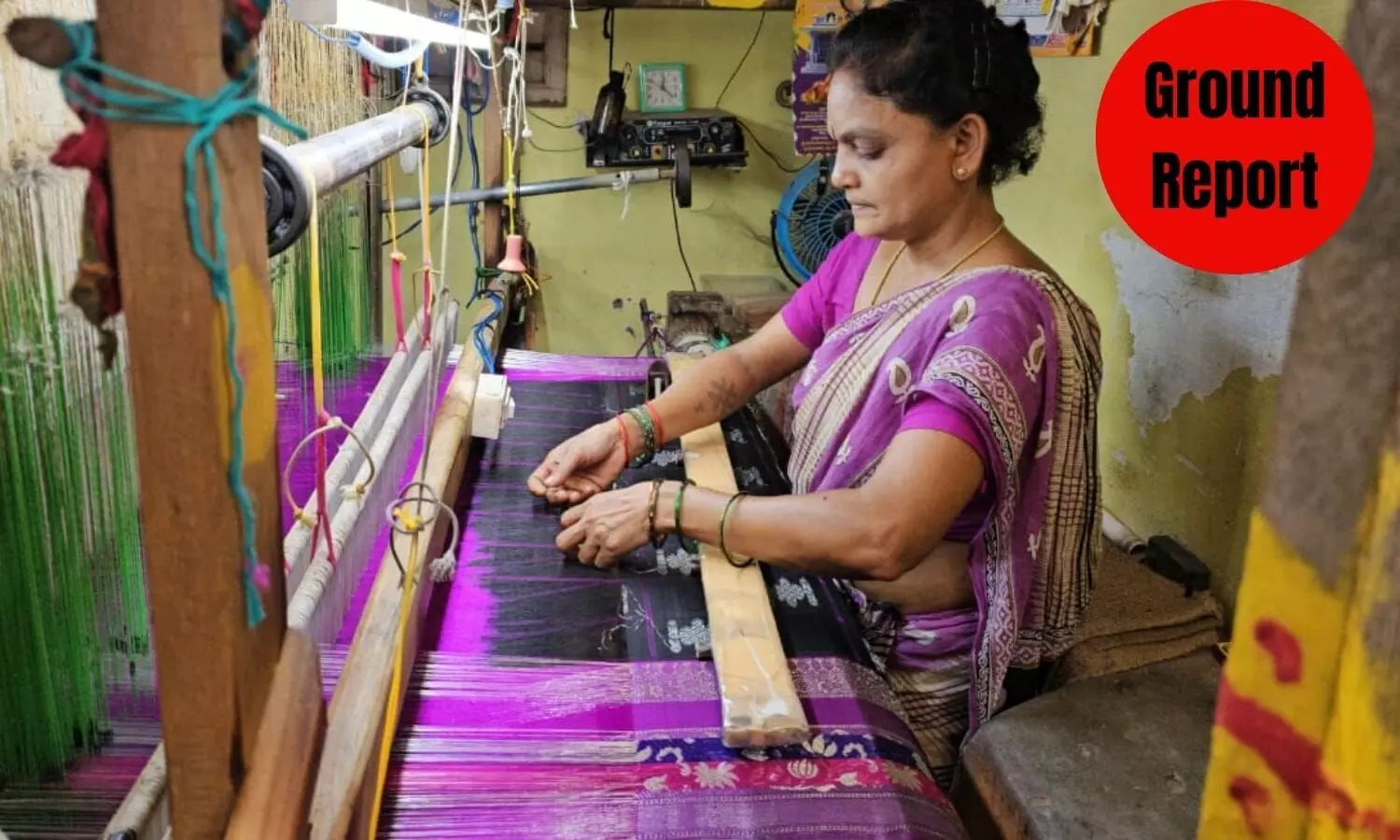Venkatagiri weaver families vote for change amid loss of income from modern machinery, GST
The weavers of Venkatagiri said that their technique of weaving is unique but the new machinery is affecting their lives
By Sri Lakshmi Muttevi
Venkatagiri: No matter which party comes to power, around 30 families from Gangamma Gudi Veedhi – a BC majority colony in Venkatagiri Assembly constituency – feel that their lives wouldn’t change. While Andhra Pradesh is going for its mega polls (State Assembly and Lok Sabha) with a tough fight between the political parties, meet the oldest weavers from Venkatagiri who speak about their struggles and hope for a change under a new government.
Dominant by the Padmashali and Devangi communities, Venkatagiri is still one of the few places in India that makes 100-count cotton saris, with 60- or 80-count being the norm. But this is about to change; Venkatagiri has been doing silk jamdani work for about fifty years, much longer than Uppada.
Changes in tech and finance regulations affecting weavers
While Venkatagiri sarees are famous across South India, the weaver community is financially struggling due to the GST on raw materials, the latest in weaving machines bulldozing their work, not being covered under certain welfare schemes and more.
When visiting Gangamma Gudi Veedhi, NewsMeter found about 300 families who have been weaving for generations and every house has a loom. In Venkatagiri, it is the old-style weaving equipment that brings the family income and food. Every member of every household contributes and works together to weave a sari.
‘Nothing changes for us’
When asked what are they expecting from the new government, Malleshwari, a weaver who shares the hard work with her husband said, “Our families have been into weaving for the past 50 years and our lives have been the same, then and now. In fact, it has become worse now with the advent of technology (power maggam). Fighting against the modern machinery of weaving sarees is a tough job. So many governments have changed but our lives are the same.”
Machinery costs lakhs
The weavers of Venkatagiri said that their technique of weaving is unique but the new machinery which has come now across India is affecting their lives.
“For generations, we have been used to weaving using one of the oldest techniques, we know but since the last few years, the new machinery of weaving sarees is dominating our style. While we weave one saree in four days, the machinery can weave hundreds of sarees in one go. Now, there is no market for our style of weaving sarees and we are forced to make only 10 sarees in a month,” said Malleshwari.
“People think that Venkatagiri saris are doing very well. But the business is not making progress as it did almost 40 years ago. For a saree which costs Rs 15,000, we get Rs 2,000 profit despite the hard work we do. We cannot afford to buy the power maggam unless the government supports us,” said Srinivasulu from the BC colony.
GST on raw materials
For a weaver, Dhanujay of Venkatagiri, GST cost on raw materials especially zari thread is affecting them.
“GST on raw materials is a big issue for us. Adding to this, we get no more Rs 2,000 for any costly saree. It would be good if the government can support us with machinery which costs in lakhs,” said Dhanujay.